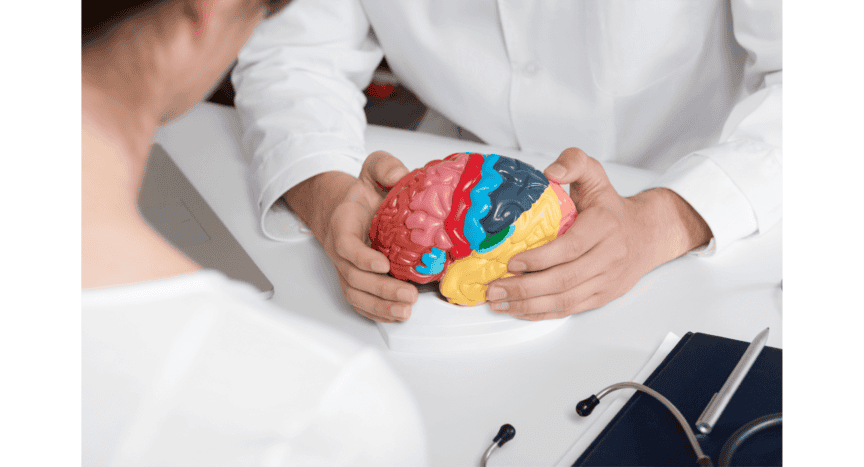When we think about hearing, we often focus on the ears as the primary organ responsible for our sense of hearing. However, the journey of sound doesn’t end with our ears—it is just the beginning. Once sound waves travel to the inner ear they are converted into electrical signals and sent to the brain. Then the complex task of auditory processing begins. Here’s how the ears and brain work together to help you hear.
From Sound Waves to Electrochemical Signals
Auditory processing starts with the ears. First, the outer ear captures sound waves and funnels them into the ear canal. When the sound waves reach the eardrum, it vibrates. These vibrations are then transmitted through the middle ear bones, known as ossicles, and ultimately reach the cochlea in the inner ear.
Within the cochlea, specialized hair cells convert the vibrations into electrical signals, that contain information about the volume, pitch, and timbre of the sound waves. Finally, these electrical signals are sent to the brain via the auditory nerve.
The Brain’s Auditory Pathway
Once the electrical signals from the cochlea reach the brain, they travel along a complex pathway specifically dedicated to auditory processing. The signals first arrive at the brainstem, where basic processing and sorting take place. From there, the information is relayed to higher-level auditory centers in the midbrain, thalamus, and finally the auditory cortex in the temporal lobe. Along the way your brain makes quick decisions about the sounds, determining what the sound is and if it poses any threat. It is in the auditory cortex where the brain truly makes sense of the incoming signals and gives us the perception of sound.
The Complexities of Auditory Perception
Auditory perception is not a simple task. The brain must decipher various aspects of sound, including its pitch, volume, characteristics, and location in space. These processes require intricate computations and synchronization between different regions of the brain.
For example, the auditory cortex analyzes the frequency of a sound to determine its pitch, while the superior temporal gyrus helps us localize where the sound is coming from in our environment. This coordinated effort ensures that we can make sense of all the sounds around us, interpreting them correctly so we know how to react.
The Brain’s Adaptability and Plasticity
The brain’s role in auditory processing goes beyond basic perception. It also possesses remarkable adaptability and plasticity. This means that the brain can reorganize itself in response to changes in auditory input or experiences.
For example, individuals who are blind from birth may repurpose areas typically associated with visual processing to enhance their auditory abilities. This adaptability underscores the brain’s incredible capacity to adjust and optimize its auditory processing capabilities.
Auditory Processing Disorders
Just as the brain can adapt, it can also encounter challenges in auditory processing. Auditory processing disorders (APDs) are conditions characterized by difficulties in interpreting auditory information. Individuals with APDs may struggle to differentiate between similar sounds, have difficulty understanding speech in noisy environments, or exhibit delays in language development.
If you have a loved one with an auditory processing disorder, seeking treatment is the best way to help them feel supported in their daily life. With the right interventions, they can process sounds more effectively and enjoy connecting with the sounds around them.
Enhancing Auditory Processing
It’s important to take care of our hearing health and seek out the necessary support when needed. You can enhance your auditory processing by listening to music or podcasts, having conversations, or doing any other activities that include mindful listening.
Additionally, interventions such as auditory training exercises or using assistive listening devices may improve auditory processing capabilities for those with hearing loss or APDs.
Visit Us for Support
The ears and brain work together to help you make sense of all the sounds around you. Understanding the brain’s role in auditory processing deepens our appreciation for the complexities of hearing and highlights the importance of caring for our hearing health.
If you’re ready to find out more, or you’ve noticed any signs of hearing loss, visit us today for more support. Together we’ll find out more about your hearing health, and offer treatment recommendations that match your needs.

